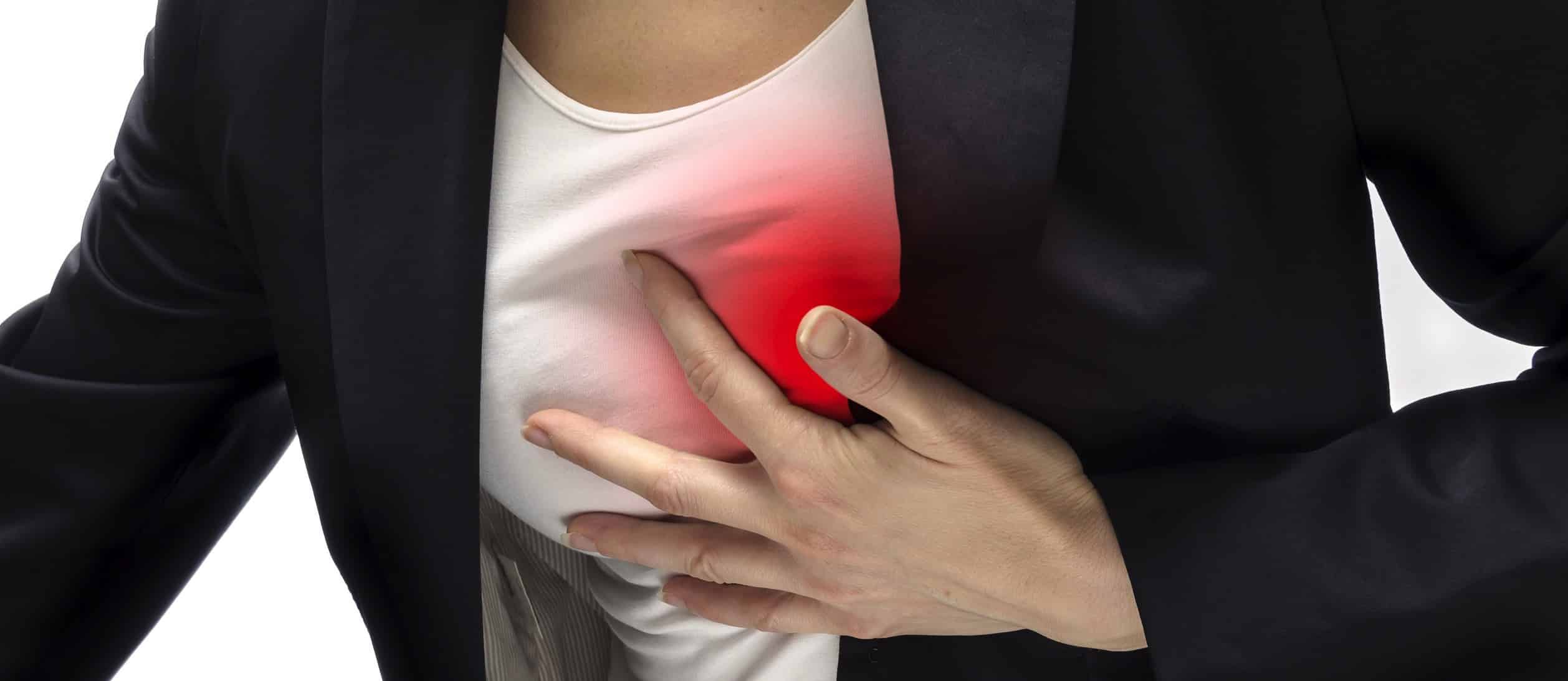As I explore in my video Plant-Based Diets For Breast Pain, eating healthy appears to offer relief from a variety of menstrual symptoms, including cramping, bloating, and breast pain.
Breast pain accompanying one’s period, called cyclical mastalgia, was dismissed in the 70s as ”merely an expression of psychoneurosis.” Women with breast pain were labeled “frustrated unhappy nulliparae,” meaning they were just upset that they hadn’t given their husbands children yet.
Now we know what women always knew, breast pain is all too common, and its effect on quality of life is underestimated. Approximately 60 to 70 percent of women experience some type of breast pain at some stage of their lives, and in 10 to 20 percent of cases it is severe. Some breast tenderness during one’s cycle is normal, but breast pain is not.
In many cases, surgery was prescribed. Thankfully by the 21st century the medical community had switched course. “We live in an era of evidence-based surgery,” read a 1999 review, “which behooves us all to justify the surgery we undertake.” What a concept! So the profession stopped cutting off the breasts of women in pain.
The hormone prolactin is considered to be a central factor, as women with cyclical breast pain have elevated levels, and a prolactin inhibitor drug was found to be an effective treatment. The side effects of the drug are so bad, though, that some women are unable to stay on it. There had to be better way.
Well, while up to two-thirds of Western women suffer from breast pain in their lifetimes, it apparently may affect as few as 1 in 6 women in Asian countries. Researchers suspected it might have to do with their lower fat diet. For example, women eating traditional plant-based diets all their lives, like rural Bantu African women, have lower prolactin levels. Their extraordinarily low rates of chronic disease in general were actually one of the inspirations for Nathan Pritikin’s work (see the series of videos that starts with Engineering a Cure).
How do we know these differences between countries aren’t just genetic? Well, when researchers fed Bantu women a Western diet—meat, butter, milk, eggs, bread and sugar—for a few weeks, they experienced a significant rise in prolactin. Their hormonal changes on a Westernized diet were comparable to those found in Western women with menstrual irregularities.
What part of the Western diet was responsible, though—maybe it was the bread and sugar? To see if it was the meat, researchers took some New Yorkers and put them on a vegetarian diet for two weeks, and that alone brought their prolactin levels down, suggesting that meat was the culprit. So researchers decided to give it a try for breast pain.
The first pilot study involved ten women with severe cyclical mastalgia. They were put on a more plant-based low fat diet for three months and all ten women got better. There was no control group, though, so part of their improvement may have just been the placebo effect. Thus a randomized controlled trial was undertaken.
A Canadian research group had been carrying out a clinical trial of dietary fat reduction in patients with precancerous breast changes, and they noted that that patients with cyclical breast problems frequently experienced striking relief of symptoms after reduction of dietary fat, so they randomized half the women into a lower fat group. Again, a significant improvement in symptoms was found.
Since then, we learned that vegetarian women have fewer menstrual disturbances than nonvegetarian women. Only about five percent of the cycles of vegetarian women were found to be anovulatory (meaning they failed to release an egg) compared to 15 percent of nonvegetarian menstrual cycles. Those eating more plant-based low fat diets may also experience significantly less bloating compared to placebo, and women with painful menstrual cramps placed on a vegan diet experienced significant relief.
Researchers designed a “crossover” study where they put meat-eating women on a plant-based diet for two cycles, and then switched them back to their regular diet with some placebo supplement to show changes before and after dietary improvement, and then back at baseline. The problem the researchers discovered, though, is that several participants felt so much better that they refused to go back to their regular diet, violating the study protocols.
Bottom line, the researchers concluded that a plant-based diet may offer relief from breast pain, as well as “significant reductions in menstrual pain duration, pain intensity, and duration of premenstrual symptoms related to concentration, behavioral change, and water retention [bloating].”
Some plants may work better than others. See Saffron for the Treatment of PMS and Wake Up and Smell the Saffron, as well as the follow-up video Flax Seeds For Breast Pain.
More on the medical profession’s traditional views on women in my video Plant-Based Bioidentical Hormones, and I have more than a hundred other videos on women’s health.
-Michael Greger, M.D.
PS: If you haven’t yet, you can subscribe to my videos for free by clicking here and watch my full 2012 – 2015 presentations Uprooting the Leading Causes of Death, More than an Apple a Day, From Table to Able, and Food as Medicine.
